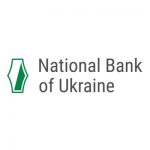MiFIR & EMIR Reporting – Challenges and Lessons Learnt
Course description
This course is now replaced by our new programme: Regulatory Reporting for EMIR, MIFIR & SFTR.
You may be also interested in our public virtual course on MiFID Compliance, EMIR Refit, or SFTR Transaction Reporting. Register for any 2 public courses at the same time and save £100 + VAT (in total, not per course).
You can still arrange this programme on in company basis. We also offer full day in-company courses on all major regulations including: MiFIR, EMIR, SFTR, SFDR, MiFID 2, CASS, SMCR, MAR, UK RFS – Reporting Fund Status, IFPR – Investment Firm Prudential Regulation, CRS, FATCA, DAC6, BCBS – IOSCO UMR – Uncleared Margin Rules and more.
All programmes are delivered by senior experts who are currently working within the sector with some of the leading financial institutions. Contact us to discuss your requirements.
____________________________________
EMIR Trade Reporting has been in force since Feb 2014 (with valuations reporting 6 months later), with revisions to the reporting regulations in 2017. MIFIR Transaction Reporting has been live since Jan 2018. This training session covers the key challenges encountered by banks, broker dealers, asset managers and hedge funds, key lessons learnt in implementing trade and transaction reporting, and successful remediation of any issues.
Conducted by an expert with over 18 years of practical experience from the sector, this workshop covers all aspects of regulatory reporting from organisational scope to data validation, data sourcing, counterparty and entity identification, and asset class/instrument identification – and resulting impact to Front, Middle and Back Office processes.
You may be interested in our MiFID Compliance – Key Areas & Lessons Learnt course. Register for both courses at the same time & save extra £100 (in total, not per course).
What will you learn
- This workshop covers all aspects of regulatory reporting, from organisational scope, to data validation, data sourcing, counterparty and entity identification, and asset class/instrument identification – and resulting impact to Front, Middle and Back Office processes
- Key learnings from implementation of EMIR over the last 6 years, and MIFIR over the last two years, benchmarking against peers from the sell-side and buy-side, and resolution of any open questions.
- Real life industry examples of best practices, post-implementation issues, and successful remediation
- Regulatory guidance from the FCA, CSSF, ESMA and other local regulators
- Understand the key impacts to US, EMEA and APAC institutions in scope, and the new regulatory reporting landscape
_________________________________
Our online classes are so much more than just a webinar – they provide an interactive experience where you will be able to get your questions answered in real time by our senior experts and have discussions with other participants. You will receive a comprehensive set of course materials and course certificate on completion. And finally, you will benefit from savings on course fee and travel expenses. There is no VAT charge if you are based outside of the EU.
Main topics covered during this training
- Regulatory Background for both regimes
- Scope of Entities, Counterparties, asset classes
- Key Reporting Requirements for MiFIR and EMIR
- Definitions and Data Validations
- Fields Analysis – Instrument, Product, Entity and Personal Data
- Systems and Controls
- Implications for EU and Global Investment Banks and Asset Managers
- Global Regulatory Reporting
- Implementation Challenges
Who should attend
- Heads of Trading, Investment, Portfolio Management, Operations, and Business Risk
- Heads of Regulatory Reporting
- Compliance and HR
You may also be interested in:
- MiFID Compliance – Key Areas & Lessons Learnt – NEW
- Regulations & Operational Compliance for Funds
- Regulations & Operational Compliance for Financial Services Firms
- Clearing & Settlement and Counterparty Risk
Register for any 2 courses at the same time and save extra £100 (in total, not per course).
EMIR & MiFIR Reporting - One Day Course
- MIFID II/MIFIR and MAR – Market Transparency, Market Abuse and transaction reports
- Entities and transactions in scope, ARMs
Key Reporting Requirements
- Trading Capacity
- Definition of trade execution
- Trade Lifecycle scenarios, transmission of order
- Reporting exemptions and Reportable instruments
- Instrument and underlying identifiers (ISINs, CUSIPS), using the ANNA DSB
- Unique Product Identifiers (UPIs)
- Trade Economics, LEIs and identifying counterparties
- Personal Data Requirements
- Systems and Controls – Regulatory Obligations, Reconciliations with ARM
- Global Regulatory Reporting – Dodd Frank, HKMA, SFC, ASIC, JFSA, SFTR
- EMIR Introduction – OTC Derivatives, Central Clearing, CCPs, TRs
- Regulatory drivers, Entities in scope, Financial and Non-financial counterparties
- Trade and Position Reporting
- Trade Lifecycle Action types
- OTC, Cleared, and Listed Derivative scenarios
- Reconciliation with counterparty reporting
- Specific Asset classes – FX, Energy, Commodity
- Unique Trade Identifiers (UTI) Generation and Matching
- Unique Product Identifiers (UPIs) ISIN, Alternate identifiers
- Trade Economics, Collateral and Valuation Data, Confirmation details
- Systems and Controls – Regulatory Obligations, Inter TR Reconciliation
- Global Regulatory Reporting – Dodd Frank, HKMA, SFC, ASIC, JFSA, SFTR
Trainer
The trainer is an industry advisor and regulatory expert with over 20 years of experience in investment banking, asset management regulations and Regulatory Technology (RegTech). He is an industry expert in Financial Regulation, RegTech and Open Banking and covers all the key banking and finance regulations across US, EMEA and APAC including MIFID II, EMIR, CASS, SFTR, IFR/IFD, Dodd Frank, FINMA (SIX), HKMA MAS and SFC, IBOR Transitions, SMCR, and ESG Regulations such as SFDR.
He is experienced in strategic regulatory technology, processes and platform management incorporating risk and governance policies.
His recent key engagements include banks such as HSBC, Deutsche Bank, JP Morgan and Barclays and buy side firms such as T. Rowe Price, Ruffer, M&G and Investec Asset Management, to name a few. He is also a member and advisor of industry association committees for regulatory consultations with bodies such as ESMA, FCA, PRA/Bank of England and SEC.
FAQ
We offer banking and finance courses as well as soft skills and business management training. You can either attend an open public course in London or Dubai or arrange customised in-house training to be delivered in any of your offices worldwide.
Most of our public courses are run over 2 full days. Some programmes are offered as a 1 or 3 day training.
In-house training is tailored to client’s requirements and can be organised over 1 day, 2-3 weeks or longer.
Public courses are organised mainly in London and Dubai. Occasionally we organise courses in other centres like Paris or New York. Check our public course calendar for the current list of programmes. We use a range of training venues, all in the centre of the cities and with excellent transport links to the airports and train stations.
In London we use venues in the centre (near Oxford Circus station or in Mayfair) or in the City (near Liverpool Street or Moorgate stations).
In Dubai our courses are organised in one of 4-5* hotels in the Deira district. Once you register we will send you detailed information together with accommodation options if required.
Our in-house courses can be delivered anywhere in the world. We work with over 25 trainers worldwide. Contact us do discuss your requirements. Check our list of available programmes.
Our courses are run in central locations from 9 a.m until 5-5.30 p.m. There are 2 coffee breaks and a lunch break. Lunch is always provided in the venue.
Dress code is smart casual.
All our programmes are taught by senior specialists who have spent many years in their respective sectors, working as senior managers and head of departments, so they understand very well the market and the challenges you are facing.
The experience of our trainers allows us to create very practical programmes, focused on current market trends and challenges. You can be sure that you will gain the knowledge which can be instantly applied in your workplace after the course. You will be analysing real life case studies, take part in group exercises and discussions as well as role plays, whenever applicable.
We want our courses to be as practical and interactive as possible so we limit the number of participants in order to optimise your time with the trainer and allow you to ask questions which are important for you.
In order to understand your requirements and expectations, we will send you a pre-course questionnaire.
You will also receive post-course support so if you have any questions after you left the training, you are welcome to contact us.
There are 2 easy ways to register:
- Go to the course of your choice and click Register Now button to fill the registration page
- Email us to enquiry@eurekafinancial.com
After you register, we will send you registration confirmation and an invoice so you can arrange the payment. Please note that your place is not confirmed until we receive it.
If you register within Early Bird discount period, there’s limited time to arrange the payment in order to be eligible for the discount. You will find all the details on the invoice.
We don’t advise to make any travel and hotel arrangements until you receive full course confirmation from us.
We will send you venue and course details as soon as possible but most likely about 3-4 weeks prior to the course commencement.
You can pay by:
- Making a bank transfer
- Debit/credit card
- Cheque payable to Eureka Financial Ltd. - only within UK
Just mark preferred paying option on the registration form. Whichever form of payment you choose we will always send you an invoice.
If you pay by card, a 2.2% processing fee will be added. We will send you authorisation form so you can give us your card details.
Included in the price of a public course are:
- Course tutorial
- Take away course materials
- Course Certificate
- Lunch on the days of the training as well as drinks and snacks throughout the course
The price doesn’t include accommodation, flights, transfers and any additional costs outside of the training venue.
Yes, we always offer Early Bird discount, so the sooner you register the more savings you can make. We also offer group discounts and if you register for 2 or more programmes at the same time.
If you are a full time student or unemployed, we offer a 25% discount of the full price of the training. Student ID or unemployment status confirmation is required to claim this discount.
If you attend one of our courses you will be entitled to a special discount for a year after the last course you attend with us. Also, if you have attended and recommended us to a friend, both you and your friend will receive a special discount. You will receive more information about it after you attend the course.
See our Customer Loyalty Discounts page for more details.
All our courses based in the UK are subject to the VAT charge of 20%. This fee is irrespective of the country of residence of the delegates.
You can, however, claim the VAT back by contacting UK tax office - HMRC, and filling the relevant form, as long as you comply with the following rules:
For Delegates coming from the EU countries
If you represent a registered business in another EU country, you can use the Refund Scheme to reclaim VAT you pay in the UK as long as all of the following apply:
- You're not registered for VAT in the UK and don't have to, or can't be, registered here
- You don't have a place of business or a residence in the UK
- You don't make any supplies in the UK
You can find some more information here. In order to claim the VAT you have to fill Form 65.
For the Delegates from Non EU countries
If you represent a registered business in a non-EU country, you can use the Refund Scheme to reclaim VAT you pay in the UK as long as all of the following apply:
- You're not registered for VAT in the UK and don't have to, or can't be, registered here
- You don't have a place of business or a residence in the EU
- You can only use the Refund Scheme if your own country operates a similar scheme and makes it available to UK businesses. If your country has its own Refund Scheme but doesn't let UK businesses use it, you can't claim under the UK Refund Scheme.
- You don't make any supplies in the UK
If the following rules apply to you, please fill the 65A form and send it to HMRC.
Webinars
You can cancel your participation up to a month before the course and receive a refund minus 10% of the full course value. Between 2-4 weeks before the course you will be charged 50% cancellation fee and if you cancel less than 2 weeks before the course you can only offer your place to a colleague. Up to 2 weeks before the course you can reregister for another edition for 10% reregistration fee if there is another webinar offered or you can rebook for a course in London by paying the difference in price plus 10% reregistration fee.
Classroom Courses
If there is any official travel restriction or difficulty related to the COVID pandemic around the time of the course we will convert the training into a webinar or offer to attend the next classroom edition at no extra cost.
If you are unable to attend the course, you can either send a replacement at no extra charge or, up to 10 days before the training, you can transfer your booking to another edition within the next 6 months paying administrative fee of 20% of the full course price. For any cancellation requests received between 11 days and 4 weeks from the course we offer 50% refund or reregistration to another edition for 25% of the value of the booking. For any cancellation requests received more than 4 weeks before the course date we will offer a refund less an administration fee of 10% of the full course price.
Cancellations must be made in writing (letter or email) and reach our office four weeks prior to the course date. We regret that only limited refunds can be given after this period as per points above. Non-attendance without any notification will be charged at full rate. Your place on a course is not guaranteed until we receive the payment. All payments must be made in full before the course date.
All our trainers have been working for many years in their respective sectors before they begun to teach so they bring a wealth of practical experience to the classroom.
Most of them used to work for 15 or more years in the financial sector and corporate world, and were holding positions of Directors, VP and Senior Managers. Some of them have published books and have written articles for specialised magazines and newspapers including FT, The Independent, The Times etc. You can find detailed biography of each trainer on the page of the course you want to register for.
Yes, you will receive a Certificate of Attendance at the end of the course you attend.
If you have to apply for a Visa to attend a course in the UK, we will issue a letter to support your application. The letter will be issued only after the payment for the course has been made.
It is delegate’s responsibility to obtain a Visa and failure to do so will not make the participant exempt from the cancellation policy.
Anyone suspected of applying for a training course simply to gain a Visa letter will be reported to their embassy.
We will need the following information to issue an invitation letter:
- Full name as it appears on your passport
- Date of birth
- Passport number
- Passport issue date
- Passport expiry date








